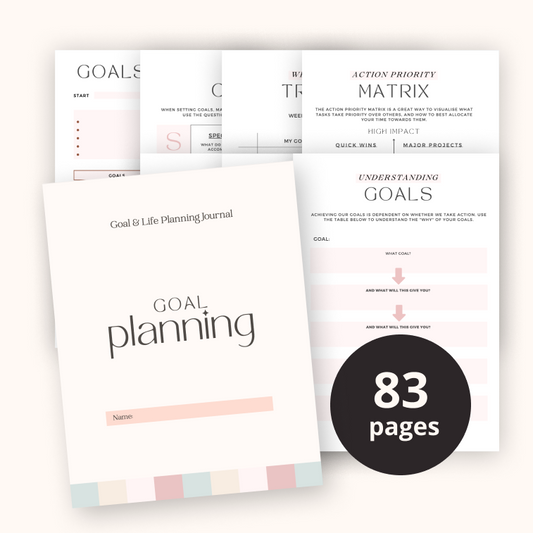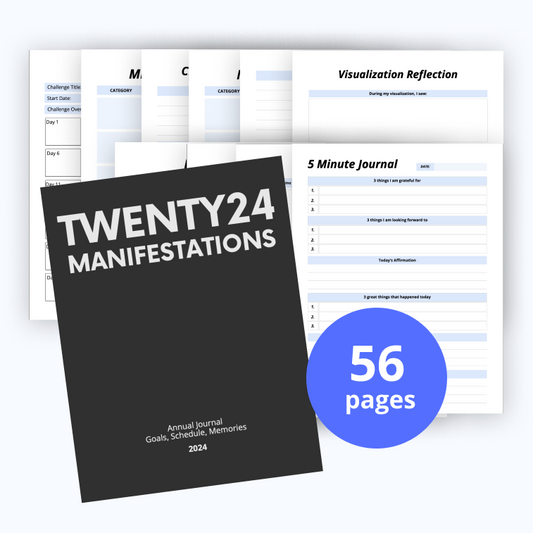Living with Obsessive-Compulsive Disorder (OCD) can feel like you’re caught in an endless loop of thoughts and rituals.
But it’s possible to break free and regain control over your life. With the right coping strategies, you can learn to manage your symptoms and reduce the impact OCD has on your daily activities.
Whether you’re newly diagnosed or have been exploring these waters for a while, understanding and implementing effective coping mechanisms is key to living a balanced and fulfilling life.
Finding effective ways to cope with OCD isn’t just about managing symptoms—it’s about empowering yourself to lead a life defined by more than just your struggles.
From cognitive-behavioral techniques to mindfulness and self-care practices, there are various strategies that can help you lessen the grip of OCD.
Let’s jump into how you can start incorporating these tools into your life, ensuring you’re not just surviving, but thriving.
Understanding Obsessive-Compulsive Disorder (OCD)
Living with OCD isn’t just about being a perfectionist or liking your books arranged by color.
It’s a serious condition where you find yourself trapped in a whirlwind of relentless thoughts (obsessions) and repetitive behaviors (compulsions).
These aren’t habits you enjoy; they’re rituals you feel you must perform to ease anxiety or prevent imagined catastrophes.
Sound exhausting? It definitely is.
What Triggers OCD?
Identifying what kicks off your OCD cycles is like being your own detective. Common triggers include:
- Stress: Big surprise, right? Stress can make anyone’s brain go haywire, but if you’ve got OCD, it’s like fuel to the fire.
- Changes in Routine: Humans are creatures of habit, more so if you’ve got OCD. A shift in your daily groove can cause your OCD symptoms to spike.
- Contact with Contaminants: For some, the thought of germs can set off a marathon of handwashing.
- Doubt and Uncertainty: Ever left the house and thought, "Did I lock the door?" Now imagine that thought on loop.
Strategies to Counteract OCD
So, what can you do to keep OCD in check?
Let’s not sugarcoat it; there’s no magical cure, but there are effective strategies to manage those pesky thoughts and urges.
- Cognitive-Behavioral Therapy (CBT): This is the gold standard. CBT is all about changing the way you think and behave, turning those OCD mountains back into molehills.
- Exposure and Response Prevention (ERP): Basically, this involves slowly facing your fears without giving in to compulsions. Think of it as OCD boot camp.
- Mindfulness and Relaxation Techniques: Ever tried meditating? It’s not just for monks. Techniques like meditation and deep breathing can help calm your mind and give you a bit of peace from the OCD chaos.
Adjusting to life with OCD is a journey. It’s about finding what works for you and remembering that you’re not your thoughts or compulsions.
With the right strategies and support, you can navigate through the challenges OCD throws your way.
Don’t forget, it’s about progress, not perfection.
Importance of Coping Strategies for OCD
When you’re facing OCD, it’s like your brain’s got a glitch. It keeps looping the same worries or actions over and over, right?
Well, coping strategies are your way of hitting the reset button.
Let’s get real; managing OCD isn’t about snapping your fingers and making it disappear. It’s about arming yourself with techniques that can make a huge difference in your day-to-day life.
Why Bother With Coping Strategies?
First off, these strategies are all about giving you control back — a sense of steering your own ship amidst the OCD storm.
When you hone in on effective coping skills, you’re essentially telling your brain, "Hey, there’s another way to handle this."
This doesn’t just help in minimizing the intensity of obsessions and compulsions; it also boosts your confidence and resilience.
Suddenly, things don’t seem so overwhelming.
Personalized Strategies Are Key
Don’t forget, there’s no one-size-fits-all when it comes to dealing with OCD. What works for someone might not do the trick for you. It’s all about finding your blend of techniques that hit the right note.
Whether it’s through Cognitive-Behavioral Therapy (CBT), Exposure and Response Prevention (ERP), mindfulness exercises, or even using Wholesome’s guided journals, it’s crucial to chart your unique journey of coping strategies.
Building a Support System
Let’s not forget the power of a solid support system.
Talking to friends, joining a support group, or even sharing your experiences in a journal can make you feel less isolated. It’s like having a cheerleading squad, but for your mental health.
They’re there to remind you that you’re not alone in this fight, offering that extra nudge when the going gets tough.
Exploring the challenges of OCD with effective coping strategies can be a game-changer. It’s about making progress, step by step, and celebrating the small victories along the way.
Don’t forget, you’re in the driver’s seat, and with the right tactics, you can steer towards a more manageable and fulfilling life.
Cognitive-Behavioral Therapy (CBT) Techniques
When it comes to tackling OCD, Cognitive-Behavioral Therapy (CBT) is like having a Swiss Army knife in your mental health toolkit. It’s practical, versatile, and powerful enough to chip away at those persistent, unwanted thoughts and behaviors.
Let’s break down how CBT techniques can become your go-to ally in managing OCD symptoms.
Understanding CBT
At its core, CBT is about identifying and challenging those nagging thoughts that fuel your OCD rituals.
It’s about rebuilding your thought patterns in a way that’s more in line with reality and less in the area of worst-case scenarios.
Think of it as reprogramming your mental GPS to take you in a healthier direction.
- Exposure and Response Prevention (ERP): This technique involves facing your fears head-on but in a controlled and gradual way. You’ll learn to sit with the discomfort without resorting to compulsions. Imagine wanting to wash your hands seven times but stopping after the first wash. Tough, right? But oh, so effective in reducing OCD’s grip on your life.
- Cognitive Restructuring: Ever tell yourself a story that turns out to be way more dramatic than reality? That’s your OCD talking. Cognitive restructuring teaches you to catch these distorted thoughts and challenge them. It’s about turning "I must do this now" into "It’s uncomfortable if I don’t, but not the end of the world."
- Mindfulness: This isn’t just for yogis or meditation buffs. Mindfulness in CBT is about staying present and observing your thoughts and feelings without judgment. It’s about acknowledging your obsessions without engaging in compulsions. Kind of like seeing a text from your ex and choosing not to respond.
- Journaling: Here’s where we at Wholesome come in. Our guided journals are designed to complement your CBT journey. They provide a structured way to track your thoughts, challenge them, and reflect on your progress. Think of it as your CBT assignments but way more fun and insightful.
Mindfulness and Relaxation Techniques
So, you’ve been wrestling with OCD. Mindfulness and relaxation techniques? Yeah, they’re your new best friends.
Let’s break down how they can help you kick some serious OCD butt, without making it sound like rocket science.
Chill Your Mind with Mindfulness
First off, mindfulness.
It’s not just a buzzword or something that only people in yoga pants do. It’s about being in the moment, truly experiencing the now without judgment.
Sounds simple, but for someone with OCD, it’s like having a superpower. Mindfulness teaches you to observe your thoughts and feelings without engaging with them.
When OCD whispers those annoying doubts and urges, mindfulness lets you say, "Not today, OCD."
Here’s how you can start:
- Take 5 minutes each day to sit quietly and focus on your breathing.
- When your mind wanders (and it will), gently bring your focus back to your breath.
- Practice non-judgment. If you have thoughts like “I’m bad at this,” acknowledge them and let them float away.
Relaxation Techniques: They’re Legit
Next up, relaxation techniques.
When your body is relaxed, it’s harder for anxiety and OCD thoughts to take hold.
Here are a few to try:
- Progressive Muscle Relaxation (PMR): Tense each muscle group in your body one at a time, then release. It’s like giving anxiety a physical eviction notice.
- Deep Breathing: Slow, deep breaths can help calm your nervous system right down. Think of it as a chill pill for your body.
- Guided Imagery: Imagine a peaceful scene. Engage all your senses. It’s like a mental vacation from OCD.
Incorporating these strategies into your daily routine can make a big difference.
They’re not overnight fixes, but with consistency, they can help you gain more control over your OCD.
And hey, if you ever feel like you’re struggling, don’t forget, it’s okay to seek help from a professional.
They can guide you through these techniques and more, tailoring a plan that’s just right for you.
Self-Care Practices for Managing OCD
Let’s chat about upping your self-care game to take on Obsessive-Compulsive Disorder (OCD) head-on.
It’s no secret that managing OCD can feel like you’re playing Whack-A-Mole in your brain – just when you think you’ve got it under control, another thought pops up.
But you’ve got more power over this than you might think.
Build a Routine That Feels Good
First things first, nail down a routine that feels more like self-love and less like a chore.
Consistency is your friend here.
Whether it’s setting aside time to journal, going for a brisk walk, or simply winding down with a good book before bed, make these activities non-negotiable parts of your day.
Why? Because predictability can be incredibly comforting to a brain that’s always on alert.
Journaling: Your Secret Weapon
Speaking of journaling, we can’t hype this enough. It’s like having a conversation with yourself on paper.
Wholesome’s guided journals are crafted to help you navigate through the choppy waters of OCD. They’re packed with prompts that encourage reflection, gratitude, and problem-solving – all of which are key in managing OCD symptoms.
It’s not just about venting (though that’s totally cool too); it’s about discovering patterns, triggers, and what genuinely makes you tick.
Get Physical
Don’t underestimate the power of getting your body moving. Exercise isn’t just great for your physique – it’s a formidable foe against OCD too.
When you exercise, your brain releases endorphins, aka the feel-good hormones. These natural mood lifters can help ease the anxiety and stress that often accompany OCD.
Not a fan of the gym? No worries.
Find something you actually enjoy – dancing, hiking, yoga – the goal is to get moving.
Stay Connected
Isolation can often amplify OCD symptoms.
So, even on the days when you’re feeling like a hermit, push yourself to connect with others. It doesn’t have to be deep, soul-baring conversations (unless that’s your thing).
A simple coffee date with a friend, joining a club, or attending a support group meeting can do wonders. It’s about reminding yourself that you’re not alone in this.
Next Steps
Embracing self-care routines, journaling, and physical activity are your stepping stones toward managing OCD.
Don’t forget, you’re not alone in this journey. Staying connected with loved ones plays a crucial role in your support system, offering both comfort and understanding.
By integrating these strategies into your daily life, you’ll find a path that not only helps in coping with OCD but also enriches your overall well-being.
Keep pushing forward, knowing that each step you take is a move towards a more balanced and fulfilling life.




